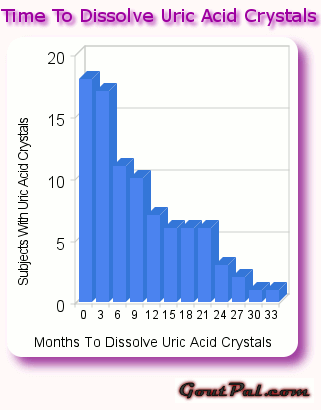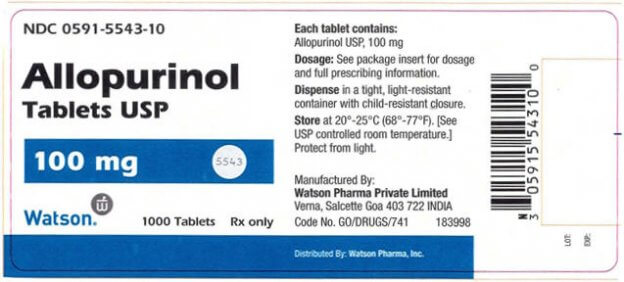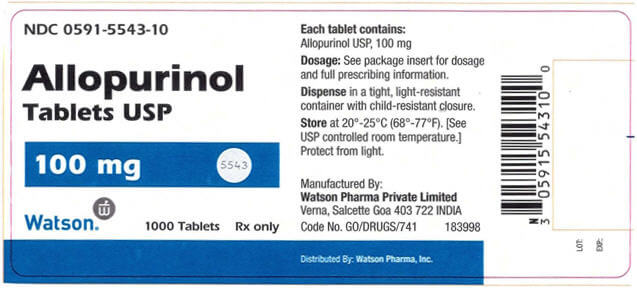Stopping Gout Together › Forums › Help My Gout! The Gout Forum › Allopurinol dosage and gout pain relief
Tagged: Allopurinol 300 mg Forum, Allopurinol Problems Solved, Celery Seed for Gout Forum, Colchicine Problems Solved, Forum for Gout Patients, Most Helpful Gout Forum, Xanthine and Gout Forum
- This topic has 15 replies, 6 voices, and was last updated 5 years, 9 months ago by
 Keith Taylor.
Keith Taylor.
-
AuthorPosts
-
-
May 13, 2017 at 6:06 am #3646
 Ruben KParticipant
Ruben KParticipant
Hello,
I’ve been suffering from gout for 15 years. I have been on allopurinol and Uloric at different times in my life. I stopped using them because I did not like the idea of being on meds for extended amounts of time. I was supplementing with mega-doses of fish oil and watching my purine intakes through diet which had worked very well. Unfortunately, over the last year, I’ve started to flare-up almost weekly and have decided to get back on allopurinol. My doc prescribed 100mg twice a day. My uric acid levels are extremely high (10.3). It might be too early to tell since I just started taking the med today. But is this allopurinol dosage too low considering my long history of gout?I’m also taking colchicine and celery seed extract. I am dreading the flare-ups during the initial allopurinol treatment. Has anyone had success with this combo?
Looking forward to some advice. Thank you.
-
May 13, 2017 at 11:57 am #3648
d q
ParticipantHi Ruben,
I’d like to start by saying sorry to hear about your recent flareups.
I, like you, was initially worried about allopurinol for the rest of my life and how that would affect me. So I avoided it at first and left it to see if I got a second attack and sure as sugar I got a second attack a year later whilst planning to go to Greece, Notting Hill Carnival afterwards and around the time of my birthday and pretty much missed out on all 3 events. For me, that was enough to say “take the meds, eat what I like, and live my life to whatever extent I can”. To be honest mate, if you have no ‘real reason’ to quit the meds apart from a voice in your head saying ‘I just don’t want to be on meds all my life’ then in all honesty mate that is the wrong approach. However allopurinol vacations are a possibility and you should take a read of Keith’s fantastic article / thread posted here:In direct answer to is 100mgs enough, following traditional methods, starting low and increasing the dose moderately (either every 3 weeks or monthly with blood testing) is probably the right way to go and will more then likely keep attacks to a minimal [probably not stop them from coming at first though]. Too much too quick will cause any crystal build up to dissolve very fast and possibly too fast for your body to handle and as the saturation of uric acid in the blood rises so fast from the dissolve it may actually re-crystalise if the body can’t flush it out quick enough. However raising your dose ‘too’ slowly may or may not put you in gout hell, see this link: http://www.goutpal.com/9942/ouch-why-does-gout-recovery-hurt/
This is why there is no real universal answer. The best dose and the correct way of increasing your dose is best done according to your blood test results before and after each increase also making sure you include kidney function tests with your blood tests.
Finally, with each increase you should be well prepared for a possible attack and as I can’t take Colchicine, I have Naproxen ready to take should I feel an attack coming on which I also take for a day or so after I feel the attack has passed to be sure.
Hope this helps and good luck.
-
May 15, 2017 at 11:16 am #3665
 Keith TaylorParticipant
Keith TaylorParticipantPersonally, I can see no logic in delaying allopurinol treatment at effective doses. Because, the advice to start at 100mg then increase, is mostly safety advice. It takes up to a month for serious (rare) allopurinol side effects to show. So, 100mg; test; 200mg; test; 300mg test is very effective with tests every 2 weeks. Also, the repeated testing, which must, of course, include liver function and kidney function tests makes for an extremely safe form of treatment.
Whereas, delays to clearing old uric acid crystals are dangerous. Because, in the worst case, crystal deposits can fatally damage your heart. But kidney damage, skin infections, and permanent joint damage, are all unnecessary common consequences of failing to control excess uric acid. So, you might think I’m laboring the point. But, excess uric acid is dangerous.
So, I believe high doses of allopurinol, within the bounds of side-effect safety checks, is the safest way for gout patients to recover. Also, Ruben has taken allopurinol before, so it should be safe to move forward quicker than the average gout patient. Assuming adequate safety tests were performed during earlier therapy.
Now, I move on to pain control.
Firstly, there is no guarantee you will get another gout attack, Ruben. As long as you get uric acid safely below 5mg/dL. Because, my mantra is: you might get a gout attack during uric acid lowering. But, you will definitely get a gout attack if you do not lower uric acid. Also, from my above, gout attacks are not your biggest problem.
Secondly, uric acid lowering therapy without gout pain control is like surgery without anesthetic. Because, it’s sadistic, unnecessary, and medically unprofessional. It’s easy to prevent gout symptoms for the six months it takes to get old crystals dissolved. Or, with enough experience, it’s easy to recognize the first signs of a gout attack, and stop it in it’s tracks. But, Ruben, I can assure you that gout laughs in the face of celery seed extract.
Finally, I’ve never seen any evidence to suggest that gout flares during early allopurinol will increase if dose is increased. Indeed, logic tells me that the opposite must be true. Because, we absolutely know that uric acid crystals dissolve faster when uric acid is at it’s lowest. Then, faster dissolution of old crystals has to reduce the risk of gout flares. Also, it must reduce the intensity and duration of gout attacks.
Of course, I’d love to be told if I’ve got this wrong.
Also, d_q, thank you for the links to my articles. I appreciate it.
-
May 15, 2017 at 5:15 pm #3682
nobody
ParticipantI’m not aware of hard evidence (as opposed to conventional wisdom which is subject to biases) but it’s not so much a matter of getting this “wrong” as a matter of over-simplifying it.
If xanthine inhibitors were all there is to SUA and if all deposits were equally exposed to blood flow throughout the dissolution phase, your reasoning would be sound. But the actual system is a lot more complicated. Generally, you’re most likely right but there’s room for doubt when it comes to particulars such as how quickly people ought to increase their dose and when they ought to stop increasing it. Clearly, the optimal approach isn’t going to be the same for everyone.
It’s not necessarily that easy to prevent symptoms by the way. Your forum is replete with people who can not this drug or who are already taking the maximum dose of that drug.My non-expert opinion is that there’s little point in wasting the time of someone who has an SUA above 10 with small doses.
You still need to make sure the body tolerates the drug of course but there are doctors who slavishly follow protocols devised by profiteers and who would therefore (in Europe and North America) make their patients ramp up allopurinol slowly but prescribe a much stronger initial febuxostat dose whatever the patient’s status and history ought to tell them about the balance of risks involved.
It seems to me the main issue in cases where SUA is very high should be whether patients would benefit from a drug or at least dietary intervention that helps with UA excretion in addition to the xanthine inhibitor. If there are enough deposits to overwhelm the body’s UA excretion abilities, no xanthine inhibitor dose is going to be sufficient to prevent temporary hardship.My anecdotal experience has been that a moderate dose is sufficient to make my SUA fall like a stone and that there are no worthwhile benefits from getting very low (as opposed to merely satisfactory) SUA test results. But I’m of course not claiming that what I gleaned from my experience is generally applicable. I’ve never had obvious tophi for one thing.
-
May 16, 2017 at 7:00 am #3692
 Keith TaylorParticipant
Keith TaylorParticipantI agree 100%, nobody. Unfortunately, I’ve fallen into my common trap of generalizing about comments rather than addressing the specifics of Ruben’s post. I’m concerned that I’ve contributed to the failure of getting any response from the Original Poster. 😳 I must try harder.
-
-
May 16, 2017 at 7:54 am #3693
 Keith TaylorParticipant
Keith TaylorParticipantHey Ruben ( @ruben-k ),
I’m sorry if this general discussion has put you off. Please let us know how your gout recovery is progressing.
Firstly, on: “I have been on allopurinol and uloric at different times in my life. I stopped using them because I did not like the idea of being on meds for extended amounts of time.”
It’s OK taking a break from uric acid control. But, that break has to be managed. So, you have to consider many aspects of gout management and your history. Then, you can plan and monitor a period of “allopurinol vacation”. Remember, there are too many factors to set a general plan for this. It requires accurate gout history, and deep understanding of uric acid control. Also, being on meds for extended amounts of time is always safer than uncontrolled uric acid. Because, excess uric acid is fatal.“is this dosage too low considering my long history of gout?” The important factor that determines allopurinol dose is uric acid blood test result. So, test after 2 weeks, including liver function and kidney function tests. If all OK, increase allopurinol. Then, repeat every 2 weeks until you reach your uric acid target. But, if you haven’t agreed a target with your doctor, we can discuss that.
“colchicine and celery seed extract”. Colchicine is great as a preventative. But, sometimes a flare can still start. So, you need anti-inflammatory support, at such times.
Now, the issue I have with celery seed extract is, I cannot find any toxicology reports. Or, recommendations on safe human dosing. But, there are several laboratory reports of anti-inflammatory action. Also, it might assist with uric acid control. At least, celery seed extract helps artificially induced high uric acid in rats. So, it’s frustrating to see that celery seed extract might help. But, I have no idea if a dose that is effective against gout pain is safe. Anyway, the most important thing is to find something that works for you.
Ruben, in 15 years of gout have you ever found pain medicine combinations that work for you?
-
May 17, 2017 at 5:22 am #3749
 Ruben KParticipant
Ruben KParticipantI typed a lengthy response and then lost it ugh.
I’d like to thank you guys for the replies. I appreciate it.
Keith, Colchicine and Naproxen have worked, but it’s been awhile since they’ve helped.
I had my first gout attack when I was in college and back then I was not thinking about daily medication. I agree that lowering SUA is extremely important because of the effects on the cardiovascular system. This is why i’m sticking to the drug therapy this time around. In the past I stopped because the flares were too brutal and nothing helped the pain. That’s why I went the natural route through diet and supplementation which worked for a good amount of time. I also have a genetic mutation (MTHFR) which plays role a in uric acid excretion.
My only concern is my dosage (100mgs twice a day) because of my really high levels of SUA I have a feeling this might not be enough. I know my target should be 5 & under, but how long does it take to get there if this is the correct dose? I will be getting blood work done in 2 to 3 weeks to see where I’m at.
Thanks again.
-Ruben
-
May 19, 2017 at 1:48 pm #3778
 Keith TaylorParticipant
Keith TaylorParticipantI agree with Patrick, but I’d also like to add a couple of thoughts. Because, we know that the “how long will it take” question is impossible to answer. But, the important question is “am I doing enough to make gout a problem of the past”.
Now, we know that you’re getting another test soon. So, that will help us estimate the total time for recovery better. But, it’s only an estimate. Therefore, you need to be confident of gout pain control now. Because, that makes the unpredictability of duration easier to bear.
Gout pain control starts with your colchicine, Ruben. I was advised to take it as a preventative for 2 weeks whenever I change allopurinol dose. Other doctors advise taking it for six months. But, the important thing is to choose an option that suits you.
Next, you need to be prepared with naproxen for the days that colchicine needs a little help. You need maximum strength prescription from your doctor. Take it as required at the first sign of symptoms. Then, if gout pain has not resolved in 2 hours, take acetaminophen (paracetamol). Or, similar compatible pain-blocker, as advised by your doctor or pharmacist. Because, we must avoid “In the past I stopped because the flares were too brutal and nothing helped the pain”. I know we are all different, but I’ve never experienced a gout attack that didn’t respond to that 3-line strategy.
1. Restrict inflammation spreading.
2. Reduce existing inflammation.
3. Block residual pain.The unwritten step 4 is: come back and tell us how it’s going. 🙂
-
-
May 17, 2017 at 6:11 pm #3753
Patrick
ParticipantMy only concern is my dosage (100mgs twice a day) because of my really high levels of SUA I have a feeling this might not be enough. I know my target should be 5 & under, but how long does it take to get there if this is the correct dose? I will be getting blood work done in 2 to 3 weeks to see where I’m at.
Ruben, I know I’m a litle late to the party here, but as Nobody says, the answer to your question is “nobody knows the answer to that.” Everybody’s body is different and unique, and based on a myraid of factors, a person’s Uric Acid is affected by a number of things. Body Mass Index, overall health, how long a person has had crystals in their body, etc.
You basically answered your own question when you say you will be getting your blood work checked in 2 to 3 weeks. This is the only way to know where you are at in regards to getting results. This is the ONLY way. No doctor, rheumotologist, GP, or internet friend, is going to give you a definitve hard line answer to your question based on the number of intangibles I stated in the paragraph above.
Keep doing what your doing, and follow up with periodic blood tests and you will see where you stand. Good luck and keep the forum posted.
-
May 20, 2017 at 8:34 pm #3797
d q
ParticipantFinally, I’ve never seen any evidence to suggest that gout flares during early allopurinol will increase if dose is increased. Indeed, logic tells me that the opposite must be true. Because, we absolutely know that uric acid crystals dissolve faster when uric acid is at it’s lowest. Then, faster dissolution of old crystals has to reduce the risk of gout flares. Also, it must reduce the intensity and duration of gout attacks
Just a sidenote to say this is indeed in theory true but in my experience the rapid dissolution causes more dislodging and a continuous string of attacks.
I guess you could look at like this, a slow approach (moderate dosing for a safe level of uric acid) with greater gaps between attacks as crystals dislodge slowly, or rapid dissolution and consistent pain for a short period and then thats the end of your attacks (assuming you remain uric acid controlled). -
June 13, 2017 at 11:37 pm #4164
 Ruben KParticipant
Ruben KParticipantHey guys. I received my blood results and my SUA has decreased to 6.0. I’m still on 200mg per day of Allopurinol. My kidney and liver results are fine aswell. My target is under 4 since I’ve had chronic episodes. Would you guys increase your dosage to 300mg to reach that? I have not spoke to my doctor yet as these results were posted on my patient portal. Thanks.
-
June 14, 2017 at 6:46 am #4175
nobody
ParticipantSure, it would make sense to increase your dose if there is no medical reason for you to avoid taking more than 200mg. If your doctor has already told you could take more if necessary, there’s no need to wait. If not, you should in principle discuss any changes with your doctor before taking action.
I think that under 4 is probably too low but what matters is that 6 is too high. Coming from 10.3, it is very encouraging however. Congrats! -
June 15, 2017 at 7:37 pm #4187
d q
ParticipantAlso if and when you move up to 300mgs make sure you get your liver and kidney checked again. Increasing or decreasing doses have their own set of impacts so make sure you get checked again afterwards.
-
June 24, 2017 at 4:02 pm #4371
Gout Patient
ParticipantThis is a familiar story. I was the same re allopurinol. I stopped but a few years later I developed sub-acute gout. Almost constant low level pain with some acute episodes. Fact is you’ll need to be in some for of UA lowering therapy at some point.
Regarding dosage, your originally quite high UA level would suggest 300mg is a decent dose and UA level of 300 is better than 350. Also from a practical aspect a single 300mg allopurinol tablet a day is easier to manage with a busy lifestyle.
There is evid nice if breakthrough attacks with initial dosage increases but this indicates UA lowering therapy is working. Crystals breaking up shed their protein ciast and reexpose themselves to your immune system, hence the flares. My advice is to see a rheumatologist. They are experts in this field and their experience is invaluable.
Btw I’m a clinical biochemist and I thought I’d handle my gout alone, I still do my own bloods but clinical input is very helpful.
Good luck. -
June 26, 2017 at 7:35 pm #4406
Patrick
ParticipantMy “pitch” for Allopurinol use
As a Gout sufferer for over 5 years, my story has been told on this site several times. Long story short, my Rheumatologist was very reluctant to put me on Allopurinol. I literally had to DEMAND it, of which, he finally obliged.
I originally started on 100mgs, but was bumped up to 300mgs 2 months later, as we were not seeing the results we had anticipated. Fast forward to today and my quarterly blood results are in:
Uric Acid: 4.1
Blood Glucose: 70
Cholesterol: 132
Liver enzymes: Normal
Kidney function: Normal
White Cell count: NormalBody weight: 167 lbs
In 18 months of taking Allopurinol, my Uric Acid has dropped from a high of 9.6 in January 2016, to 4.1 in June 2017. I lead a normal life, I drink occasionally and eat red meat (what!!!????) in moderation. This lifestyle would NEVER have been possible without Allopurinol. I tried the lifestyle thing. It didn’t work. I tried the Vegan thing. It didn’t work, as a matter of fact, my Uric Acid got WORSE…from 9.2 to 9.6.
The bottom line is this (especially if your Uric Acid is really high like mine was)..medication is your only option. ALL MEDICATIONS have side effects, and yes, I read the thread about the sexual problems on the other post, but me, personally have yet to experience ONE side effect. None. Maybe I’m lucky, who knows. But I lead a normal, Gout free life so far and I intend to keep it that way by doing what I’m doing, along with exercise and proper healthy choices. Keep that in mind when you are trying to decide what you want to do to combat this Gout issue.
-
June 27, 2017 at 3:04 pm #4414
 Keith TaylorParticipant
Keith TaylorParticipantI had an unusual allopurinol side effect, Patrick. Because allopurinol gave me all the benefits of better quality of life that you mention. But, I never expected that hidden boost in my self-confidence that came from taking control. 😀
Also, I remember a fight to get the right dose of allopurinol. Getting started was no problem. But I had to explain to 2 different doctors why 7 mg/dL is not low enough!

The sooner you start allopurinol, the sooner you dissolve your uric acid crystals!
-
-
-
AuthorPosts
The forum ‘Help My Gout! The Gout Forum’ is closed to new topics and replies.


